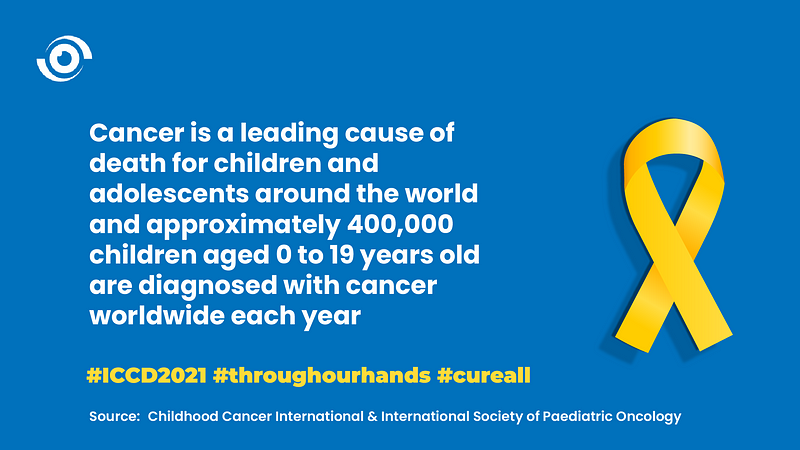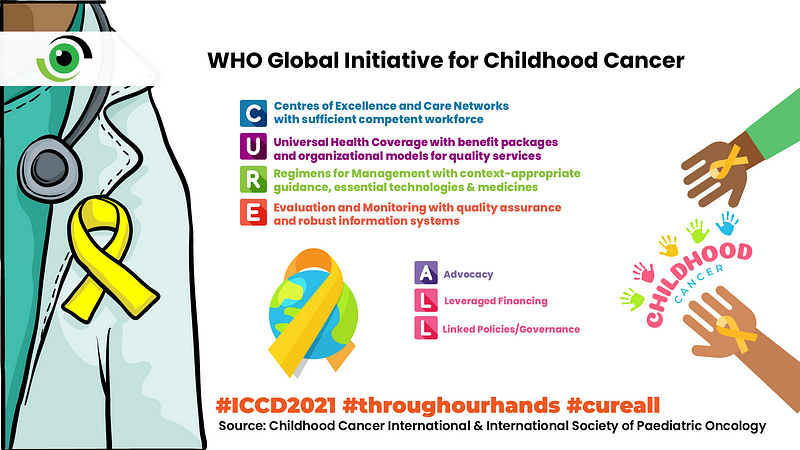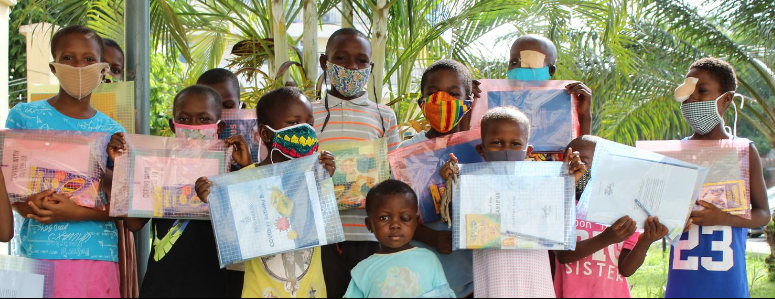By Olubunmi Oyebanji (Lead Writer)
On the 15th of February every year, the world observes the International Childhood Cancer Day (ICCD). It is a global collaborative campaign designed to raise awareness about childhood cancer and to express support for children and adolescents with cancer, as well as the survivors and their families. A cancer diagnosis is upsetting at any age, but especially when the patient is a child. The ICCD helps foster an increased appreciation and deeper understanding of issues and challenges impacting children and adolescents with cancer and the survivors.
Globally, cancer is surpassing infectious diseases as the leading cause of disease-related mortality in children and adolescents. More than 215,000 children 14 years and younger and 85,000 adolescents are diagnosed with cancer every year around the world and many more remain uncounted and unreported due to a lack of childhood cancer registries in many countries. International Childhood Cancer Day highlights the need for concentrated global action to address the mounting challenge posed by this non-communicable disease.

Of the estimated 300,000 children who get cancer annually around the world, 80% live in low-and-middle income countries (LMICs) and have a 10% — 30% chance of survival compared to 80% or more in high-income countries. The reasons for this huge disparity between high income and low- and middle-income countries include late or missed diagnosis, lack of diagnostic facilities, lack of trained staff to manage the disease, lack of funds for treatment and high rates of treatment refusal and abandonment.
In Nigeria, not much is known in terms of statistics about the prevalence of childhood cancer in the country. Before we can fully understand the impact of the disease among children and adolescents in Nigeria, and proffer solutions tailored to alleviate the impact of the disease, we must first seek to understand the actual burden of childhood cancer in the country.

This year’s ICCD Day was marked on Monday, 15 February 2021. It was a milestone commemoration as it happened to be the 20th edition of the awareness day. To recognise the day, Childhood Cancer International (CCI) and the International Society of Paediatric Oncology (SIOP) unveiled a joint three-year campaign to amplify the message of hope and accelerate life-saving progress for young cancer patients worldwide. For ICCD 2021–2023, CCI and SIOP selected the Tree of Life — a universal symbol of growth and renewal, to send the powerful message that “childhood cancer can be cured and the wellbeing of survivors achieved if all stakeholders continue acting resolutely together…..”. The core message of 2021 is “Better Survival is achievable #throughourhands”.

The ICCD campaign’s goal and unified message is “Better access to care for children and adolescents with cancer everywhere”. This message highlights the inequities and glaring disparity of access to care in most low- and middle-income countries where 80% of children with cancer live. Children and adolescents in Africa, Asia and Latin America and in parts of Eastern and Southern Europe do not yet have access to appropriate treatment including essential medicines and specialized care. Currently, where one lives often determines one’s chances of survival from childhood cancer.
Her Royal Highness Princess Dina Mired of Jordan, mother of a childhood cancer survivor, once said: “The chance for a cure, the chance to live, should not be an accident of geography. There is nothing scarier than realizing that your child has cancer. However, there is nothing more tragic than knowing that treatment and cure does exist for your particular child’s cancer and with excellent outcomes, BUT… that it is not available for your child. Why? Because your child happens to live in the wrong hemisphere!”.
This is a call-to-action for the Nigerian government to collaborate with civil society, research organisations, community establishments, financing organisations, and other private sector stakeholders to put sustainable structures in place to ensure that childhood cancer is effectively managed for every child and adolescent living with cancer.

This call-to-action backs Sustainable Development Goal 3, indicator number 4, that by 2030 we reduce mortality from non-communicable diseases by one third, through prevention, early diagnosis and treatment. It is expected that stakeholders in health care should advocate for government collaboration with national civil society organizations, non-profit groups, private sector and local communities to ensure that children and adolescents with cancer have appropriate care and support throughout their childhood cancer journey from diagnosis and treatment to follow-up care.
A national response is required to give every child the best chance of surviving cancer — to raise awareness, improve access, and offer the best possible treatment, palliative care and support for children and adolescents and their families. Following the 2021 International Childhood Cancer Day, we call for renewed public-private and multi-stakeholder collaboration to care for children and adolescents with cancer in Nigeria.


